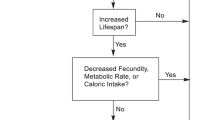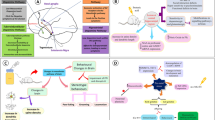Abstract
The crucial role of xanthine oxidoreductase (XOR) gene and its active isoform, xanthine oxidase (XO), in purine metabolism and cellular oxidative status led us to investigative their fluctuations in food deprivation induced food hoarding in mice. After, 10 h food deprivation, mice that hoarded lesser than 5 g were considered as ‘low-hoarders’ while mice that hoarded higher than 20 g were considered as ‘high-hoarders’. Mice who hoarded between 5 to 20 g of food were excluded from study. An increase (1.133-fold) in encephalic XOR expression has been found in high-hoarders compared with low-hoarders without sex consideration. An increase (~ 50-fold) in encephalic XOR in female high-hoarders vs. female low-hoarders while a decrease (0.026-fold) in encephalic XOR in male high-hoarders vs. male low-hoarders demonstrated that food deprivation is associated with sex-dependent alteration in XOR expression. The encephalic and hepatic XO activities were not different in male high-hoarders vs. male low-hoarders while encephalic XO activity has been also increased significantly in female high-hoarders (~ 4 times) compared to female low-hoarders. The plasma and hepatic XO activities tended to be increased in female high-hoarders as compared to female low-hoarders, however the uric acid levels in plasma, liver and brain tissues were not altered in female high-hoarders as compared to female low-hoarders. In sum, this study generally proposed that different gene expression space is behind of hoarding behavior in a food-deprived mouse model. Specifically, this is the first study that examined the levels of encephalic XO activity and XOR expression in hoarding behavior, although additional studies are requested.

Similar content being viewed by others
References
Asasi K, Naseri D, Karimi I (2016) Ontogenetic study of enteric xanthine oxidase in the chick embryos: focus on the late embryogenesis. Comp Clin Pathol 25(3):625–629. https://doi.org/10.1007/s00580-016-2241-1
Bartness TJ, Keen-Rhinehart E, Daily MJ, Teubner BJ (2011) Neural and hormonal control of food hoarding. Am J Physiol Regul Integr Comp Physiol 301(3):R641–R655. https://doi.org/10.1152/ajpregu.00137.2011
Becker MA (2001) Hyperuricemia and gout. In: Scriver CR, Beaudet AL, Sly WS, Valle D (eds) The Metabolic & Molecular Bases of inherited disease, vol 2. McGraw-Hill, New York, pp 2513–2535
Bradford MM (1976) A rapid and sensitive method for the quantitation of microgram quantities of protein utilizing the principle of protein-dye binding. Anal Biochem 72(1-2):248–254. https://doi.org/10.1016/0003-2697(76)90527-3
Budhiraja R, Kayyali US, Karamsetty M, Fogel M, Hill NS, Chalkley R, Finlay GA, Hassoun PM (2003) Estrogen modulates xanthine dehydrogenase/xanthine oxidase activity by a receptor-independent mechanism. Antioxid Redox Signal 5(6):705–711. https://doi.org/10.1089/152308603770380007
Cheung KJ, Tzameli I, Pissios P, Rovira I, Gavriolova O, Ohutsubo T, Chen Z, Finkel T, Flier JS, Freidman JM (2007) Xanthine oxidoreductase is a regulator of adipogenesis and PPARI activity. Cell Metab 5(2):115–128. https://doi.org/10.1016/j.cmet.2007.01.005
Daly M, Jacobs LF, Wilson MI, Behrends PR (1992) Scatter hoarding by kangaroo rats (Dipodomys merriami) and pilferage from their caches. Behav Ecol 3(2):102–111. https://doi.org/10.1093/beheco/3.2.102
De Oliveira JE, Uni Z, Ferket PR (2008) Important metabolic pathways in poultry embryos prior to hatch. Worlds Poult Sci J 64(04):488–499. https://doi.org/10.1017/S0043933908000160
Deacon RM (2006) Assessing hoarding in mice. Nat Protoc 1(6):2828–2830. https://doi.org/10.1038/nprot.2006.171
Desco MC, Asensi M, Marquez R, Martinez-Valls J, Vento M, Pallardo FV, Sastre J, Vina J (2002) Xanthine oxidase is involved in free radical production in type 1 diabetes protection by allopurinol. Diabetes 51(4):1118–1124. https://doi.org/10.2337/diabetes.51.4.1118
Dew TP, Day AJ, Morgan MR (2005) Xanthine oxidase activity in vitro: effects of food extracts and components. J Agric Food Chem 53(16):6510–6515. https://doi.org/10.1021/jf050716j
Domenicali M, Caraceni P, Vendemiale G, Grattagliano I, Nardo B, Dall’agata M, Santoni B, Trevisani F, Cavallari A, Altomare E, Bernardi M (2001) Food deprivation exacerbates mitochondrial oxidative stress in rat liver exposed to ischemia-reperfusion injury. J Nutr 131(1):105–110
Erin S (2002) Illumination and food deprivation as determinants for hoarding in golden hamsters. Honors projects paper 35. http://digitalcommons.iwu.edu/psych_honproj/35
Furné M, Garcia-Gallego M, Hidalgo MC, Morales AE, Domezain A, Domezaine J, Sanz A (2009) Oxidative stress parameters during starvation and refeeding periods in Adriatic sturgeon (Acipenser naccarii) and rainbow trout (Oncorhynchus mykiss). Aquac Nutr 15(6):587–595. https://doi.org/10.1111/j.1365-2095.2008.00626.x
Hall IH, Scoville JP, Reynolds DJ, Simlot R, Duncan P (1990) Substituted cyclic imides as potential anti gout agents. Life Sci 46(26):1923–1927. https://doi.org/10.1016/0024-3205(90)90507-N
Karami KJ, Coppola J, Krishnamurthy K, Llanos DJ, Mukherjee A, Venkatachalam KV (2006) Effect of food deprivation and hormones of glucose homeostasis on the acetyl CoA carboxylase activity in mouse brain: a potential role of acc in the regulation of energy balance. Nutr Metab (Lond) 3(1):15. https://doi.org/10.1186/1743-7075-3-15
Keen-Rhinehart E, Dailey MJ, Bartness T (2010) Physiological mechanisms for food-hoarding motivation in animals. Philos Trans R Soc Lond Ser B Biol Sci 365(1542):961–975. https://doi.org/10.1098/rstb.2009.0225
Khany A, Karimi I, Alimoradian D, Zavareh S (2016) Distribution of xanthine oxidase in selected tissues of a mouse model of menopause. J Chem Health Risk 6(3):225–235
Livak KJ, Schmittgen TD (2001) Analysis of relative gene expression data using real-time quantitative PCR and the 2(−Delta Delta C (T)) method. Methods 25(4):402–408. https://doi.org/10.1006/meth.2001.1262
McCord J (1985) Oxygen-derived free radicals in postischemic tissue injury. N Engl J Med 312(3):159–163. https://doi.org/10.1056/NEJM198501173120305
Michel TM, Camara S, Tatschner T, Frangou S, Sheldrick AJ, Reidere P, Grunblatt E (2010) Increased xanthine oxidase in the thalamus and putamen in depression. World J Biol Psychiatry 11(2-2):314–320. https://doi.org/10.3109/15622970802123695
Murray RK (2003) Harper's illustrated biochemistry. McGraw-Hill, New York
Naseri D, Asasi K, Karimi I (2017) Similar developmental fluctuations of hepato-renal xanthine oxidoreductase gene expression and xanthine oxidase activity in layer and broiler chicken embryos. Br Poult Sci 58(2):144–150. https://doi.org/10.1080/00071668.2016.1268250
Parks D, Bulkley G, Granger D (1983) Role of oxygen-derived free radicals in digestive tract diseases. Surgery 94(3):415–422
Santos RX, Cardoso S, Silva S, Correia S, Carvalho C, Crisóstomo J, Rodrigues L, Amaral C, Louro T, Matafome P, Santos MS, Proença T, Duarte AI, Seiça R, Moreira PI (2009) Food deprivation promotes oxidative imbalance in rat brain. J Food Sci 74(1):H8–H14. https://doi.org/10.1111/j.1750-3841.2008.00982.x
Solaroglu I, Okutan O, Kaptanoglu E, Beskonakli E, Kilinc K (2005) Increased xanthine oxidase activity after traumatic brain injury in rats. J Clin Neurosci 12(3):273–275. https://doi.org/10.1016/j.jocn.2004.12.002
Soñanez-Organis JG, Vázquez-Medina JP, Zenteno-Savín T, Aguilar A, Crocker DE, Ortiz RM (2012) Prolonged fasting increases purine recycling in post-weaned northern elephant seals. J Exp Biol 215(9):1448–1455. https://doi.org/10.1242/jeb.067173
Stevens L (1996) Avian biochemistry and molecular biology. Cambridge University Press, Cambridge. https://doi.org/10.1017/CBO9780511525773
Sugawara N, Ohta T, Lai YR, Sugawara C, Yuasa M, Nakamura M, Tamura M (1999) Iron depletion prevents adenine nucleotide decomposition and an increase of xanthine oxidase activity in the liver of the long Evans cinnamon (LEC) rat, an animal model of Wilson's disease. Life Sci 65(13):1423–1431. https://doi.org/10.1016/S0024-3205(99)00378-1
Vorbach C, Harrison R, Capecchi MR (2003) Xanthine oxidoreductase is central to the evolution and function of the innate immune system. Trends Immunol 24(9):512–517. https://doi.org/10.1016/S1471-4906(03)00237-0
Vorbach C, Capecchi MR, Penninger JM (2006) Evolution of the mammary gland from the innate immune system? BioEssays 28(6):606–616. https://doi.org/10.1002/bies.20423
Wakatsuki A, Okatani Y, Izumiya C, Ikenoue N (1999) Effect of ischemia-reperfusion on xanthine oxidase activity in fetal rat brain capillaries. Am J Obstet Gynecol 181(3):731–735. https://doi.org/10.1016/S0002-9378(99)70520-X
Zannolli R, Micheli V, Mazzei MA, Sacco P, Piomboni P, Bruni E, Miracco C, de Santi MM, Vagnoli PT, Volterrani L, Pellegrini L, Livi W, Lucani B, Gonnelli S, Burlina AB, Jacomelli G, Macucci F, Pucci L, Fimiani M, Swift JA, Zappella M, Morgese G (2003) Hereditary xanthinuria type II associated with mental delay, autism, cortical renal cysts, nephrocalcinosis, osteopenia, and hair and teeth defects. J Med Genet 40:e121. https://doi.org/10.1136/jmg.40.11.e121
Zhang H, Wang Y (2011) Differences in hoarding behavior between captive and wild sympatric rodent species. Curr Zool 57(6):725–730. https://doi.org/10.1093/czoolo/57.6.725
Zhang XY, Yang HD, Zhang Q, Wang Z, Wang DH (2011) Increased feeding and food hoarding following food deprivation are associated with activation of dopamine and orexin neurons in male Brandt’s voles. PLoS One 6(10):e26408. https://doi.org/10.1371/journal.pone.0026408
Acknowledgments
This study was supported by Razi University, Kermanshah, Iran.
Author information
Authors and Affiliations
Corresponding author
Ethics declarations
Conflict of interest
The authors declare no conflict of interest.
Rights and permissions
About this article
Cite this article
Karimi, I., Motamedi, S. & Becker, L.A. An effort toward molecular neuroeconomics of food deprivation induced food hoarding in mice: focus on xanthine oxidoreductase gene expression and xanthine oxidase activity. Metab Brain Dis 33, 325–331 (2018). https://doi.org/10.1007/s11011-017-0166-2
Received:
Accepted:
Published:
Issue Date:
DOI: https://doi.org/10.1007/s11011-017-0166-2




